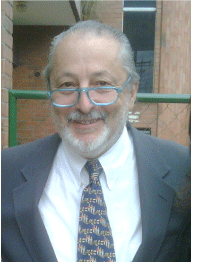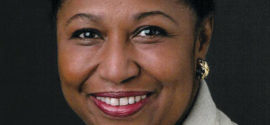Sam Gejdenson, International Business Advisor

Gejdenson served twenty years as a U.S. Congressman from Connecticut, four years as a member of the Connecticut House of Representatives, and one year in the administration of Governor Ella Grasso. Gejdenson advises clients on international business issues through his company, Sam Gejdenson International.

Throughout his government career, Gejdenson dedicated himself to helping those less fortunate than himself. A tireless advocate for democracy and human rights, he co-authored the Trafficking Victims Protection Act, which put America on the front lines of fighting forced labor, slavery, and prostitution, and co-authored the Intercountry Adoption Act, to protect children and their adoptive families. He shares his expertise with the Yale Center for Dyslexia & Creativity, the National Democratic Institute, Women’s Health Research at Yale University, and the Yale Child Study Center, which is working with Israeli and Palestinian doctors to help children traumatized by conflicts in their homelands.
Sam Gejdenson, the son of Holocaust survivors, was born in 1948 in a UN displaced persons camp in Germany and grew up on a dairy farm in Connecticut. While his parents never talked about their wartime experiences, he learned at an early age that government could be “a very powerful tool for good and a very powerful tool for evil. Without doubt,” he said recently, “seeing the great evil that government under the Nazis did and the great good that the United States did was a central factor in my becoming politically active.” As the senior Democrat on the House International Relations Committee, he campaigned on behalf of women, children, and seniors and wrote legislation to help U.S. companies access foreign markets and boost American exports. Working with Presidents Reagan and Clinton and Middle Eastern leaders, he was also a point person in Congress on issues relating to that region.
But success was not always a part of his DNA. Although Gejdenson did not realize it until he was in his thirties, he is dyslexic. Like most people who have the disability, he had trouble reading, particularly reading aloud. When he was younger, it took so much energy for him to read that he would be exhausted after about ten minutes. An ophthalmologist later prescribed glasses to relieve eye strain, but they were useless. “Dyslexia has been a blessing and a curse,” he says. “In school, the first thing was that I was labeled an underachiever because I scored very well on IQ tests but not on other tests. So if you tried hard and failed, they’d conclude you were stupid. I got through school by listening to my teachers and cramming for exams.”
Gejdenson finished high school with poor grades and never applied to college. He went to work at a factory and attended night school, eventually completing his associate’s degree at Mitchell College and his bachelor’s at the University of Connecticut, which he describes as “a good school and a good value.” Looking back on his student days, Gejdenson said that school would have been much more enjoyable if he had been able to read effectively.
Advances in technology eventually came to the rescue in the form of a computer program called Speedreader, which improved his reading skills but not his ability to read aloud. During political campaigns and his tenure in Congress, when Gejdenson had to make frequent speeches, he found that by knowing his facts and jotting down a few words as memory aids, he could be an effective extemporaneous speaker and avoid having to read from a prepared text. “That’s a big advantage dyslexia gave me,” he said.
Another advantage, which he describes as his “savior,” is the Kindle electronic reader. When traveling the globe for business, Gejdenson downloads books to his Kindle, which has a computerized program that reads to him while he follows the words on the screen. The device has dramatically increased the number of books Gejdenson completes. “I used to read about a book a month, but now I read four to five books a month and dozens during the course of a year,” he said.
Related

John Hickenlooper, Former Governor of Colorado
If Coloradans wanted the kind of governor they could have a beer with, they elected him. In fact, many had already knocked down a few with three-term governor John Hickenlooper, who was a brewpub owner before he became mayor of Denver at age 50. Even his tongue twister of a name didn’t stop his unlikely ascent up the political ladder.
Read More
Michael Bennet, U.S. Senator From Colorado
Michael Bennet comes from a family with a long history of public service. Born in Delhi, where his father was an aide to the U.S. ambassador to India, Bennet grew up in Washington, D.C., where the elder Bennet held prominent posts in the Carter and Clinton administrations and served as president of National Public Radio. Bennet, himself, is following in his family’s footsteps.
Read More
Carol Moseley Braun, Former U.S. Senator & U.S. Ambassador to New Zealand
This is the first time Ambassador Carol Moseley Braun, the first African American woman elected to the senate, has ever talked about her dyslexia. She’s speaking out now to help de-stigmatize a brain difference that’s coming between kids and their dreams. Although she remains wary that any label, especially put on kids of color, can be used as an excuse for abuse.
Read More
Anne M. Burke, Illinois Supreme Court Justice
Anne Burke grew up on the South Side of Chicago, the youngest of four children and a self-described C student who struggled with reading, writing, and mathematics throughout grammar and high school.
Read More